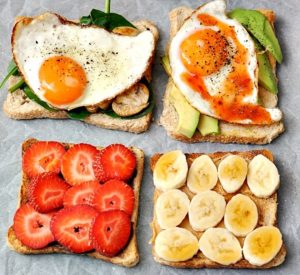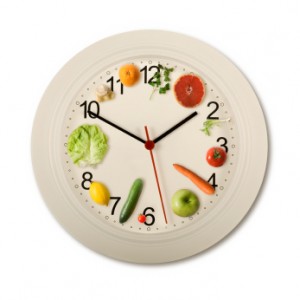There are two kinds of people who graduate high school: the ones who tear up, and the ones who whoop for joy. Typically, majority of students would be excited to break free from their parents’ clutches, and live their life in college. With no parent supervision and lenient school rules, college freshmen are free do what they like. This newfound freedom includes freedom of activity, spending, and of course, eating. From partying with friends to binge-eating potato chips while watching TV shows till late hours, college life can generally be labeled as unhealthy.
Now, we all have been in that situation where we wanted a scoop from that colorful-looking ice cream truck but our parents didn’t allow it. Well guess what? Now you can eat all the ice cream you want. Throwing a pizza party at 3 a.m., having a sushi fest at the nearest Japanese restaurant, challenging your friends on who can stuff the most dumplings into their mouths like Po the Panda, it’s all possible.
It’s common for college students to go ahead with their shenanigans at night since classes are usually held during the day (or if they decided to be nocturnal animals and sleep the whole day). Therefore, more food is consumed at night when they should be eaten during the day, resulting to hormone imbalances in the body. For those who stay up late at night completing assignments and only manage to catch three to four hours of sleep, grumpiness would be your new common trait. In addition to that, due to sleep deprivation, you would eat more. Of course, when we’re in a bad mood and terribly grumpy, healthy and nutritional food is out of the question. Instead, you would turn to junk food, or any unhealthy food for that matter.
But what about after that?
As we all know, overconsumption of food would leave us feeling bloated, tired, and sleepy. Since most of your time is spent on going to classes, studying, hanging out with friends, and eating, when do you have time to burn off all those calories you stuffed into your body? Eventually, you would notice that your favourite shirt feels a little tighter, you can’t seem to fit in your jeans anymore, and- Is that a double chin?
Soon enough, people who enter college as skinny sticks come home for semester break as plump pumpkins. You would dread going to family gatherings because you know that one of your aunts would most definitely pinch your cheeks and say: “My, look how fat you’ve become!” Going out with old friends might be a problem because you’re self-conscious of your body image and afraid that they might comment on it. Younger siblings and cousins would start hugging you because you’ve become a walking marshmallow. Really, how could you let this happen?
To prevent this and stay the healthy beauty that you are, here’s what you can do to avoid Fairy Godmother (A.K.A. food) from turning you into a pumpkin:
- Drink lots of water
Constantly hydrate yourself. Don’t worry if you keep going to the toilet, flushing out all the waste in your body is more important. When you feel like grabbing a snack, drink a glass of water. This way, you would feel full and think twice about that snack you were planning to eat.
- Reduce sweet / high in calorie drinks
Stay away from sodas or any of those chocolate ice cream milkshakes you usually have at your favourite cafe. When buying drinks other than good ol’ water, check the packaging of the drink to see how many calories it contains. If it is a drink served at a restaurant, try googling the amount of calories it contains. If there is no information on how many calories that drink on the menu is, try deducing what the drink is made of and roughly estimate the number of calories the drink contains from there.
- Try cooking
Classes, assignments, tests, club meetings, events, yes, you’re booked for the week. The same goes to next week. And the week after that. You just don’t have the time to buy meat, vegetables, spices, seasoning, or rice to cook up a decent meal like the countless ones you had when you were living under your parents’ roof. Though turning to restaurants, cheap stores near campus, or takeaways (“tapau”) seem like the fastest and easiest way to fill up your hungry belly, it is certainly not good for your health in the long run. According to the University of Sheffield, eating fast food, takeaways, and convenience food are few of the key factors why college students gain weight. What you can try is get some friends and allow each of them (including yourself) to cook something. Then, you and your friends can share the homemade food together without emptying your wallet to buy all the items needed to cook a whole meal all by yourself.
- Exercise
With academics and social life taking over, exercise is the last thing on our minds. Judging on how much a college student eats per day, exercise is crucial to at least maintain their weight. If getting out of that comfortable chair of yours is the hardest thing you would have to ever do in your life, invite some friends to exercise with you. Like studying, your exercise buddy should be someone who would push you and advise you throughout your workout. So, that certain couch potato you might have thought of inviting is probably not be the best idea. Exercising for at least half an hour, three times a day, should be enough to prevent you from gaining a big belly. For those whose college or university provide facilities such as basketball courts, swimming pools, squash courts, gyms, or ample space for a good run, please do take advantage of them.
Well, so far, this is what you can do to prevent weight gain during your college / university life. Hopefully, this helped you to be inspired and healthy.
– Nukey








